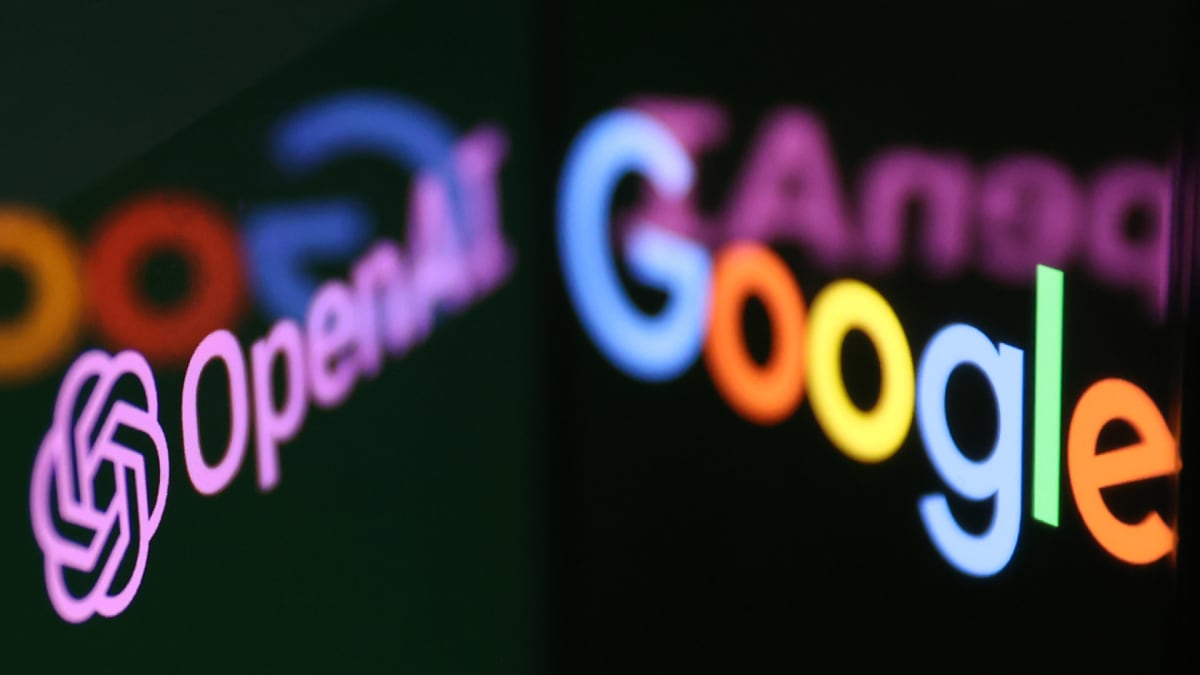
This is a blow for Alphabet's Google.
The internet-search-and-advertising giant has just lost a big asset, at a time when its core business is under dangerous attack.
Indeed, since the Nov. 30 unveiling of ChatGPT, the conversational robot, Google has never been so vulnerable. ChatGPT is developed by the startup OpenAI, whose main shareholder is Microsoft.
The software giant has invested more than $11 billion in the startup, which is now valued at nearly $30 billion.
The return on investment for Microsoft is potentially colossal since OpenAI, thanks to ChatGPT, has breathed new life into the software giant (MSFT). Microsoft is using the technological advances enabled by the chatbot to challenge Google's dominance in internet search.
Microsoft Challenges Google
ChatGPT, which provides human-like responses to even complex requests, has changed the way internet search is perceived. The chatbot showed that artificial intelligence has reached a point where robots can perform certain tasks much better than humans can.
Microsoft immediately incorporated ChatGPT features into Bing, its search engine. The Redmond, Wash., group has also deployed these features in almost all its products and in its cloud activity.
Faced with this offensive, Google (GOOGL) recently launched Bard, a rival to ChatGPT. While it's still too early to peg the leader in the AI arms race -- all the other Big Tech groups as well as small players are participating -- investors seem to be betting on and rewarding Microsoft. The software stalwart's stock is up 28% this year.
The group, co-founded by Bill Gates and Paul Allen, is currently the world's second-largest company measured by its $2.3 trillion market value, according to companiesmarketcap.com.
Tech giant Apple, the world's largest company, has a market capitalization of $2.7 trillion. Alphabet, Google's parent, is fourth with a market value of $1.4 trillion. The Saudi oil giant Saudi Aramco is third at $2.1 trillion and e-commerce behemoth Amazon is fifth at $1.05 trillion.
It is in this context that Google has just lost Geoffrey Hinton, 75, whom Breitbart described as the "Godfather of AI."
Hinton, who received his Ph.D. in artificial intelligence 45 years ago and is one of the most respected and admired voices in the industry, left Google on May 1, he told The New York Times in an interview.
He spent 10 years at Google, which bought his AI startup in 2013.
The British computer scientist said he was leaving because he wanted to be free to warn against the risks associated with AI. He plans to devote himself to warning about the dangers of this revolutionary technology, which he helped develop for decades.
"It is hard to see how you can prevent the bad actors from using it for bad things,” Hinton told The New York Times.
'Hinton Knows What He’s Talking About': Musk
He added that the dangers of AI were closer to us than he thought.
"I thought it was 30 to 50 years or even longer away,” Hinton told the newspaper. "Obviously, I no longer think that.”
Few people can speak about AI with as much authority as Hinton. His pioneering work on neural networks laid the foundation for the technology that's booming today. For this, Hinton, along with his colleagues Yann LeCun and Yoshua Bengio, received the Turing Award, considered the Nobel Prize of computer science.
In the short term, the scientist fears a surge of fake photos, videos and texts, to the point that "an average person can no longer know what is true and what is not.”
He also fears that the technology will soon go from being a tool for many trades to that of a substitute. Here, Hinton is thinking of translators, personal assistants, legal assistants and other jobs with many routine tasks.
In the longer term, he fears for humanity. He points out that AI often discovers unexpected patterns or can draw conclusions from the massive amount of data it processes. The fact that systems are no longer just executing what humans ask of them, but are able to generate and execute code themselves, could become dangerous, he told The New York Times. By doing so, autonomous weapons are no longer an unthinkable doomsday scenario.
Hinton fears that a race between Microsoft and Google in AI could quickly derail the technology. The tech pioneer says he doesn't want to take part in such an escalation.
He joins the ranks of many tech luminaries who called for a pause in the development of the next generation of AI tools in a letter last month.
Elon Musk, CEO of Tesla (TSLA) and founder of SpaceX, who was one of the signatories of this petition, welcomed the warnings from Hinton.
"Hinton knows what he’s talking about," the billionaire reacted on Twitter on May 2.







